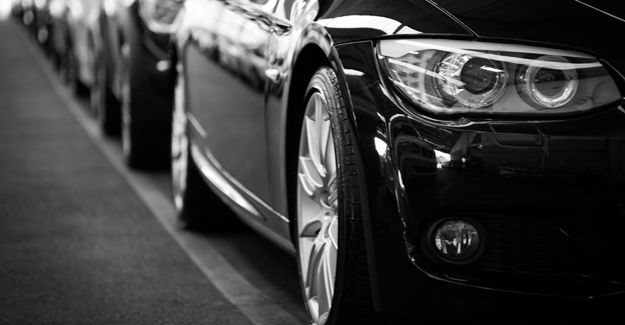
Top stories






AutomotiveHilux Custom Builds offers purpose-built solutions for your business
Toyota South Africa Motors 16 Feb 2026
More news


Marketing & Media
Ads are coming to AI. Does that really have to be such a bad thing?














Mark Dommisse, the chairperson of the National Automobile Dealers’ Association (Nada), explains: “We are already changing the way we do business and I see a downsizing of showrooms but there is still a need by many customers to interact with a person in the final stages of purchasing a vehicle, even though a great deal of initial research has been conducted online.”
“Buyers today have a choice of 49 vehicle brands in South Africa and they don’t want to make the wrong decision, so they still like to discuss the pros and cons of the vehicle and the deal offered with a sales executive.
“We see our customer base as our most important intellectual property and have heightened our efforts to further improve customer relationship management. We also believe that dealerships, especially those in rural areas, play a big role in the life of their communities, which remains important even in these changing times,” says Dommisse.
The Nada chairperson went on to say that as sales fall and fewer vehicles are serviced dealers must look at other revenue streams, such as selling tyres and providing quick service for clutch and shock absorber replacements, as well as brake system servicing to compete with external service providers and generate cash flow for the dealership.
“Dealers must think less about survival and rather concentrate on planning for the future,” concludes Dommisse.
George Mienie, the CEO of AutoTrader, and Faizal Mkhize, head of Absa vehicle and asset finance, were also members of this discussion panel, which had Gary Scott, CEO, of Kia Motors SA, as its host, and had mobility transformation as its topic.
Mienie, whose business is driven by data, says his team saw vastly different search patterns for cars taking place during the various stages of lockdown.
“Night owls were busy in the late hours and at one stage we were getting more people searching at midnight than at 9am the next morning. The number of people searching for cars during lockdown was 50% higher than pre-Covid-19,” explained Mienie. “In addition, the main vehicles being searched for during the lockdown were Volkswagen Polos and Vivos, while in November it switched to the Toyota Hilux bakkie.”
Mkhize said that although more consumers are using various websites as sources of research they still go to the finance and insurances representatives at a dealership to finalise their deals. He explained that many went through the pre-approval process but used this mainly as a tool to assess their credit rating and to see how much they could spend on a new vehicle.
“We still get about 80% of our business through our business flow from the dealers’ floors, but realise that we need to make the paperwork necessary for obtaining a loan or lease as easy and simple to complete as possible, while the F&I representatives play an important role in ensuring financial compliance with the purchasing and financing processes,” adds Mkhize.
Mienie was also the facilitator of a workshop that considered whether South Africa is ready for future mobility and what the obstacles may be in the future of mobility locally.
“Data is our roadmap for the future, and we conduct comprehensive surveys on an ongoing basis to assess the way the market is moving and how the mindset of a buyer is changing,” said Mienie. “We are very aware of the current high demand for good used cars, but this is not sustainable in light of the low rate of new vehicle sales. Dealers are all complaining about a lack of good, sellable stock.”
Mienie made an interesting observation just before South Africa went into its first lockdown. He says the number of searches in the 26 days before shutdown fell by almost half which he says was probably due to people actually going out to panic-buy a new or used car and no longer surfing the web. The number of searches increased once the first, hard lockdown was enforced.
The AutoTrader CEO says an odd trend emerged during lockdown and this was a 10-fold increase in searches for armoured vehicles. All the consumer behaviour changes have been documented and made available to the public for free on this link.